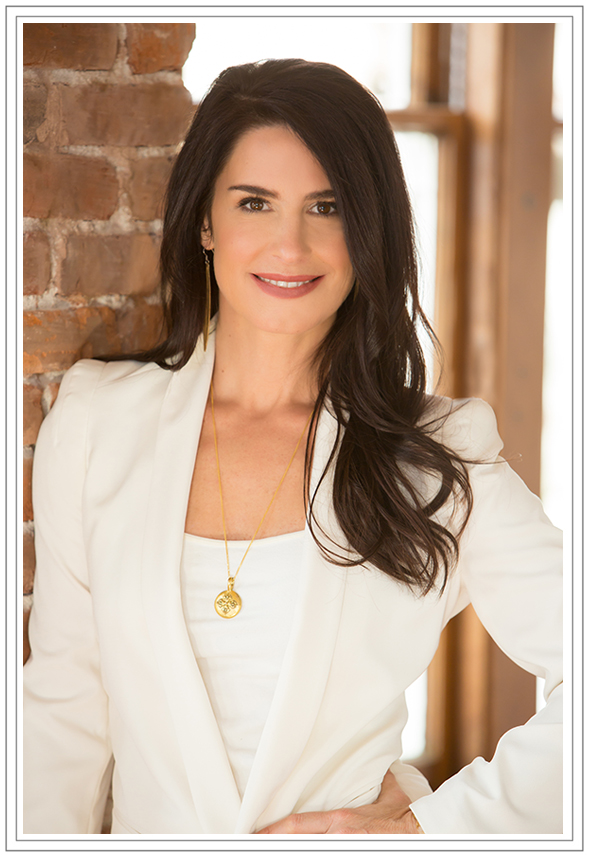Regardless of your culture, theology, beliefs, or interests, you can embark on the path of becoming more spiritually aware. Here are five tips I’ve found helpful for those wishing to progress on their spiritual path..
Spirituality is gaining in popularity across the Western culture. With yoga, meditation and energy workshops, studios, and retreats popping up all around, many people are eager to explore and cultivate a deeper sense of connection, purpose, and belonging. What does it mean to be a spiritually aware person? And, more importantly, how do you start on your own personal journey of spiritual development?
What Does It Mean to Be Spiritually Aware?
Before getting into the “how-to’s” of cultivating your spiritual practices, a good place to start is by defining what it means to be spiritually aware.
Words can mean different things to different people. The idea of being “aware” can have several meanings. At a basic level, “awareness” means noticing something obvious–like a lot of traffic on the freeway, or a storm front moving in.
At a deeper level, awareness refers to recognizing the human consciousness, the oneness that connects everyone and everything. Who you are at the core of your being.
In this context, you become awareness itself; the omnipresent witness of everything in existence. For the purpose of identifying what awareness means to you, let’s correlate it to the term mindfulness.
Understanding Mindfulness
Mindfulness can be referred to as a technique or practice of maintaining a focus on your thoughts, words, and actions. It’s a skillset you develop to help you disconnect from the constant distractions of the world you live in, and recenter yourself in the present moment.
Mindfulness can bring positive changes to how you approach life, view yourself and others, and navigate interpersonal relationships.
To put it in a different perspective, being mindful means you’re being watchful—a constant observer of your mindset, emotions, and behaviors.
But mindfulness can also bring great joy to your life! How? Noticing and enjoying the simple pleasures of life.
For example, mindfulness is about paying attention to the beauty of nature: watching the sunrise and sunset, feeling a warm breeze on your face, swimming in the ocean, walking barefoot in the grass, or staring up into a starlit sky at night—and noticing how it makes you feel inside. These are all examples of a mindfulness-based lifestyle.
Now that you have a better understanding of mindfulness, let me ask you a question: What does being spiritually aware mean to you?
It’s a question that requires some thought. So, if possible, take some time to reflect and journal on this.
Why Be More Spiritually Aware?
There may come a point in your life when you’ve reached the goals of your worldly desires. You’ve acquired enough success in business, mastered the art of relationships, and you’re dialed in on healthy lifestyle choices.
You may start to wonder if there’s more to life. You feel a nudge from deep within to take a look at what’s really going on beneath all the layers of your social conditioning.
You start to wake up to the notion that there’s something bigger calling to you from somewhere beyond your everyday living. You may hear an internal voice, see signs all around you, or meet new people who are on their spiritual path.
You become intrigued by the possibility that you’re meant for more than the 9-to-5 grind and repetitive lifestyle you have grown accustomed to. You may feel compelled to strive for something more meaningful–not material possessions or accolades.
You may even hear or feel your soul calling you to “come home”. To reconnect with who you truly are, your soul’s purpose in this life, and your relationship with God, your Higher Self, and the Universe (or whatever best supports your belief system).
In essence, you desire to be more spiritually aware.
There are many benefits of embarking on a spiritual path. Your journey will add value to your personal growth and overall experience of life.
Why do you want to explore your spirituality? Not sure? Ask yourself these questions:
- Is there something missing in your life that you can’t quite put your finger on?
- Are you seeking a deeper connection with something you don’t really understand—that part of you that is beyond your name, what you do for work, where you live, or the car you drive?
- Do you long for deeper, more meaningful connections with others? Individuals who are more like-minded, and on a similar path of spiritual discovery?
- Do you have the sense there is something bigger playing out through your life?
- Do you find yourself wondering why you’re here and what your purpose could be?
Now that you’ve considered why spiritual awareness is something worth exploring, let’s look at how you can go about developing and cultivating spiritual awareness within yourself.
Here are five tips on how to be more spiritually aware:.
1. Start a Daily Meditation Practice
One of the most effective ways of becoming more spiritually aware is to have a daily meditation practice. Meditation is about slowing down, going within, and taking time to be silent and still. It disconnects you from the chaos happening in your life and anchors you in the present moment—right here, right now.
There are several approaches and styles of meditating, so it’s best that you explore which one will work best for you. I personally recommend a silent, mantra-based meditation. It’s what I was taught by Deepak Chopra in the mid-90s and it’s wonderful for the novice as well as the seasoned meditator.
Feel free to play around with different approaches until you find your right fit.
2. Cultivate Emotional Intelligence
Be prepared to experience a swelling of emotions at some point during your mediation practice.
Meditation has the potential to bring up some emotions you’ve long-since buried. Don’t worry. This is completely normal and it’s a good thing! Meditation takes you to the depths of who you are. As you traverse the many layers of your being, you’re likely to bump up against yourself from time to time.
When this happens, just do your best to lean into your emotions—allow them to move through you like energy and try to become the witness—just watch them as they ebb and flow. If the emotions become too overwhelming, perhaps try using this guided meditation to calm your emotions.
3. Practice Self-Love
You may have heard that you must know and love yourself, but what does that actually mean?
A big part of self-love is to just be YOU and to find ways to celebrate the unique talents, gifts, and qualities you (or others) admire in yourself.
If you tend to focus on the negative aspects of yourself (we’re always our own worst critics), this is an opportunity to shift your focus to the positive. You will be AMAZED at how much this simple change will shift your mood, mindset, and confidence.
You may have been taught to make everyone else happy in life,–sometimes to the detriment of your own self-care and preservation. Practicing self-love allows you to overcome the need to put others first and practice just being authentic. You will learn to speak your truth so you can honor your own needs. It’s perfectly fine to politely decline an invitation, to be different from others, or to stand up for what you believe in, even when it’s not in alignment with someone else’s viewpoint. Honor and love yourself the way you do for others and you’ll notice a positive shift.
4. Connect More Deeply with Others
Next, it’s time to deepen your connection with others. Human beings are herd animals, meaning they enjoy the company of being around others who are like-minded and with whom they share a similar path.
As you progress along your spiritual journey and begin to wake up, the type of people you previously surrounded yourself with may not necessarily vibe with you (or vice versa) as much anymore. This is normal, and it can also be somewhat disconcerting.
Although this can sometimes be difficult and confusing, know that this is one of the clearest ways to gauge your level of transformation. In some cases, certain friendships may fall away entirely because you’re no longer vibrating on the same frequency. You may find yourself, at times, feeling lonely and isolated. Stay on course. It won’t be long before you begin attracting new people who are meant to walk alongside you in one way or another. Be on the lookout for new opportunities and relationships. And more importantly, accept them as they come around.
5. Cultivate Gratitude
Taking the time to steep yourself in gratitude each day—for the people in your life, the opportunities you’ve been given, the lessons learned, and the beauty that surrounds you—anchors you to the present moment where you will awaken to, and appreciate all the gifts in your life.
One common practice is keeping a gratitude journal. It’s easy. Each day, write about something you are grateful for— and why. Some people like to make a list each day of people, places, things, or experiences that brought a sense of joy. In addition to bringing your attention to focus on the positive each day, you can also go back on those days when things aren’t going so well and re-read previous entries to remind you that, even during the darkest of days, there is still beauty in your life and in the world.
These days, there are plenty of options for exploring spirituality—from luxurious yoga and meditation retreats in exotic destinations, to group-led vision quests in remote locations and religious gatherings all around the world. Of course, you don’t need to take extravagant trips to become more spiritually aware. These five tips allow you to explore your spirituality with simple steps that can make big and beautiful changes in your life.

An International Bestselling Author, Lifestyle and Leadership Coach and speaker, Tris Thorp is one of today’s leading experts in the field of personal growth and leadership development, specializing in emotional healing, women’s empowerment and shadow work.
Having spent a decade traveling the world, being trained by and sharing the stage with Dr. Deepak Chopra in the field of social emotional learning, consciousness and mindfulness-based practices, Tris has a real gift for integrating the ancient spiritual teachings with modern-day science and mindfulness to help people all over the world let go of their past and create an empowered new future.
During her tenure at the Chopra Center, Tris apprenticed under the Chopra Center’s co-founder Dr. David Simon, co-facilitating the Healing the Heart and Emotional Freedom workshops alongside him. Prior to his passing in 2012, Dr. Simon appointed Tris as the person to carry on his teachings in the field of emotional healing. In addition, Tris was fortunate to be mentored by the late Debbie Ford prior to her passing in 2013, which is where she continued her extensive studies of the unconscious mind and concepts of the persona and shadow. After the loss of her two mentors, Tris went on to become certified through the Ford Institute as a coach specializing in Shadow Work and reconciling mental and emotional issues stemming from past experiences. She continues to share the gifts of emotional healing and facilitating this work in the footsteps of her former mentors.
Tris is the International bestselling author of Healing Your Heart: Rewrite Your Story with Awareness and Intention. A guide book to understanding your emotions, how we create our story and workable tools and techniques to heal from the past, Healing Your Heart stewards you through the process of releasing mental and emotional baggage, forgiving yourself and others, setting and enforcing boundaries and consciously communicating your needs in a loving and effective way so you can be who you’re meant to be, do the things you want to do and have all that you deserve to have in this life.
Tris is also the co-author of bestseller Mental and Emotional Release® with Dr. Matt James. Written in a language both professionals and non-professionals can understand, Mental and Emotional Release® offers real life case studies, an overview of MER and its foundation, step by step scripts to follow, and clinical efficacy studies comparing MER to other therapies.
Clearly in her dharma, Tris’s passion and dedication to gently guide people on their inward journey through personal growth is evident in her work as a Lifestyle and Leadership coach, Trainer of Mental and Emotional Release and workshop facilitator. She teaches various courses on leadership development, personal empowerment, social emotional learning and higher states of consciousness – both in online courses and her certification programs, live workshops, VIP retreats and 1-1 clients.
Tris Thorp is Board Certified by the Association of Integrative Psychology as a Trainer of Mental and Emotional Release ®, Master Practitioner of Neuro Linguistic Programming, Hypnosis, and Mental and Emotional Release ®, a Certified Reiki Master, and an Experienced Registered Yoga Teacher with Yoga Alliance.
Tris is devoted to inspiring and empowering others to cultivate and maintain mindfulness-based lifestyle practices that lead to greater clarity, purpose and fulfillment. Through one-on-one coaching, online programs and live events, Tris specializes in helping people to fully release negative emotions, limiting beliefs and unconscious patterns, enabling them to make quantum leaps into the life they are truly meant to be living.


Trackbacks/Pingbacks